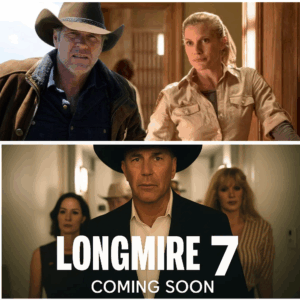 John Walker’s arc in the Marvel Cinematic Universe (MCU) has been nothing short of a rollercoaster, transforming him from a government-appointed Captain America who drew ire from fans into a compelling antihero now celebrated as a core member of the Thunderbolts team. Introduced in The Falcon and the Winter Soldier (2021), Walker, portrayed by Wyatt Russell, started as a decorated U.S. Army veteran tasked with an impossible role: replacing the beloved Steve Rogers. However, his journey from a “dime-store Captain America” to a redeemed member of the Thunderbolts in the 2025 film Thunderbolts showcases one of the MCU’s most nuanced character developments, blending trauma, redemption, and grit in a way that has captivated audiences. Let’s dive into how Walker evolved from one of the MCU’s most hated characters to a fan-favorite antihero—and why his story is a must-watch for any Marvel fan.
John Walker’s arc in the Marvel Cinematic Universe (MCU) has been nothing short of a rollercoaster, transforming him from a government-appointed Captain America who drew ire from fans into a compelling antihero now celebrated as a core member of the Thunderbolts team. Introduced in The Falcon and the Winter Soldier (2021), Walker, portrayed by Wyatt Russell, started as a decorated U.S. Army veteran tasked with an impossible role: replacing the beloved Steve Rogers. However, his journey from a “dime-store Captain America” to a redeemed member of the Thunderbolts in the 2025 film Thunderbolts showcases one of the MCU’s most nuanced character developments, blending trauma, redemption, and grit in a way that has captivated audiences. Let’s dive into how Walker evolved from one of the MCU’s most hated characters to a fan-favorite antihero—and why his story is a must-watch for any Marvel fan.
A Rocky Start: The Fall of a Would-Be Captain America
John Walker’s introduction in The Falcon and the Winter Soldier set the stage for his divisive reception. Chosen by the U.S. government to succeed Steve Rogers, Walker was a highly decorated soldier with a stellar military record, having served in the 75th Rangers Regiment. He was presented as the “All-American” hero—athletic, disciplined, and patriotic. Yet, beneath the polished exterior, cracks were evident from the start. Walker’s insecurity about living up to Rogers’ legacy was palpable, as he admitted during an interview in the series, “I’m not trying to replace Steve. I’m just trying to be the best Captain America I can be.” Despite his intentions, his aggressive tactics and inability to embody Rogers’ moral compass quickly alienated him from Sam Wilson (Falcon) and Bucky Barnes (Winter Soldier), as well as the audience.
The turning point came when Walker, after failing to apprehend the Flag Smashers’ leader Karli Morgenthau, took the Super Soldier Serum to enhance his abilities. The serum amplified his already fragile mental state, and the death of his best friend and partner, Lemar Hoskins (Battlestar), pushed him over the edge. In a moment of rage, Walker publicly murdered a surrendering Flag Smasher with Captain America’s shield, an act that shocked viewers and cemented his fall from grace. Stripped of the Captain America title and discharged from the military, Walker became a symbol of failure—a “dime-store Captain America,” as Yelena Belova later quips in Thunderbolts. Fans on platforms like X expressed their disdain, with many viewing him as a villain who tainted the shield’s legacy.
Yet, even in his lowest moment, the series planted seeds of redemption. In the finale, Walker chose to save lives over pursuing revenge against Morgenthau, holding onto a truck to protect Global Repatriation Council members long enough for Sam Wilson to intervene. This act of heroism, though overshadowed by his earlier violence, hinted at the complexity beneath his bravado. Recruited by the shadowy Valentina Allegra de Fontaine, Walker was given a new identity as U.S. Agent, setting the stage for his next chapter.
The Road to Redemption: Thunderbolts and a New Purpose
Fast forward to Thunderbolts (2025), where John Walker’s journey takes a dramatic turn. The film, released on May 2, 2025, and directed by Jake Schreier, assembles a team of antiheroes—Yelena Belova (Florence Pugh), Bucky Barnes (Sebastian Stan), Red Guardian (David Harbour), Ghost (Hannah John-Kamen), Taskmaster (Olga Kurylenko), and Walker—under the manipulative control of Valentina Allegra de Fontaine (Julia Louis-Dreyfus). The team is forced into a deadly mission, confronting their past traumas while battling the Sentry (Lewis Pullman), a new character whose mental health struggles mirror their own.
Walker’s role in Thunderbolts is a masterclass in character evolution. No longer the government’s poster boy, he’s now a man grappling with guilt and inadequacy, as highlighted by Wyatt Russell in an interview with ScreenRant. Russell noted that Walker hides his insecurities behind a facade of bravado, still haunted by his failures as Captain America. This is visually symbolized by his new shield, which, unlike the indestructible vibranium one Steve Rogers wielded, is made of a weaker metal that bends and dents during battle—a metaphor for Walker’s own fragility. The trailer for Thunderbolts shows his shield practically folded in half, a detail that underscores his ongoing struggle to measure up.
One of the film’s most poignant moments comes in Walker’s “shame room,” a surreal sequence where the Thunderbolts confront their deepest regrets. For Walker, this manifests as reliving the moment he lost the Captain America title, forcing him to face his guilt head-on. David Harbour, who plays Red Guardian, shared in a ScreenRant interview that this scene unlocks the key to Walker’s arc: learning to listen to others and get out of his own way. By connecting with his teammates, Walker finds a sense of team and redemption, a theme that resonates throughout the film.
Walker’s redemption arc culminates in his decision to rally with the Thunderbolts against the Sentry’s alter-ego, The Void, which threatens to engulf New York City in supernatural darkness. Despite his damaged shield and lack of superhuman durability compared to some teammates, Walker fights with grit and determination, proving his worth not as a replacement for Captain America, but as a hero in his own right. The film ends with the Thunderbolts being publicly revealed as the “New Avengers” by de Fontaine, a ironic twist that Walker accepts with a nod of approval to Sam Wilson, now fully embracing his role as Captain America. This moment of reconciliation between the two marks a significant milestone in Walker’s journey, showing his growth from antagonist to ally.
Why John Walker’s Arc Resonates
Walker’s transformation from a despised figure to a redeemed antihero has struck a chord with audiences, as evidenced by the positive buzz following Thunderbolts’ release. The film has an 88% approval rating on Rotten Tomatoes, with critics praising its character-driven narrative. Posts on X reflect a shift in sentiment, with users now calling Walker “one of the best-written MCU characters since Endgame” for his relatability and depth. Unlike Steve Rogers, who embodied an almost unattainable moral perfection, Walker’s flaws make him human—someone who struggles with trauma, makes mistakes, and fights to find his place in a world that has judged him harshly.
His journey also highlights the MCU’s evolving approach to storytelling. Thunderbolts leans into darker themes like mental health and isolation, using characters like Walker to explore the gray area between heroism and villainy. As a soldier who never had the luxury of Rogers’ clarity, Walker’s arc reflects the real-world challenges of living up to impossible standards, a theme that resonates deeply in an era where mental health discussions are more prominent than ever. His inclusion in the Thunderbolts, a team of misfits who don’t see themselves as heroes, allows him to redefine what heroism means on his own terms.
What’s Next for John Walker?
Walker’s story doesn’t end with Thunderbolts. His confirmed appearance in Avengers: Doomsday (2026) suggests that Marvel has big plans for the character. Having survived the events of Thunderbolts and earned a spot on the New Avengers, Walker is poised to play a significant role in the MCU’s multiversal narrative. Will he continue to grow as a hero, or will his past demons resurface in the face of new threats like Doctor Doom? One thing is certain: Walker’s journey is far from over, and his evolution has already left an indelible mark on the MCU.
John Walker’s arc is a testament to the power of redemption in storytelling. From a “dime-store Captain America” who stained the shield with blood to a redeemed member of the Thunderbolts, his journey is a gripping tale of growth, resilience, and self-discovery. Thunderbolts not only revitalizes Walker’s character but also sets a new standard for the MCU, proving that even its most hated figures can become heroes worth rooting for. Don’t miss this electrifying chapter of the MCU—Walker’s story will leave you cheering for the underdog like never before!




